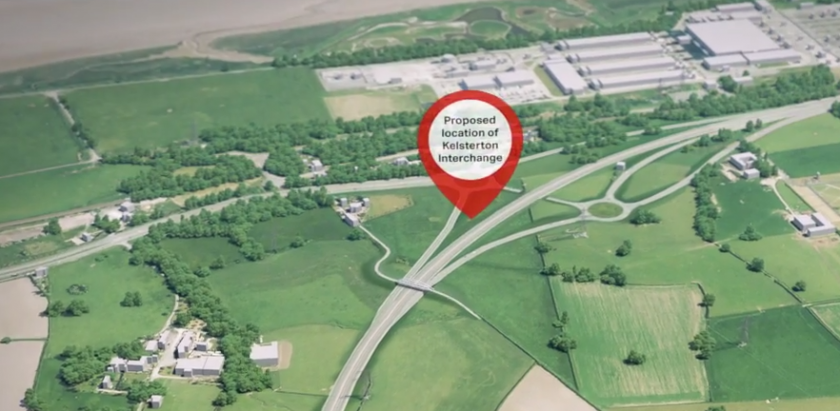Flintshire: Red Route rethink sparks outcry from wildlife trust

The controversial Red Route through Flintshire — scrapped by the Welsh Government in 2023 — has unexpectedly resurfaced in the new draft ‘North Wales Regional Transport Plan’, prompting fresh opposition from environmental campaigners.
The 13km dual carriageway, officially known as the A55/A494 Flintshire Corridor project, was previously ruled out by ministers following a Roads Review Panel recommendation, which branded it “unsustainable, unjustifiable and damaging.”
Now, two years on, the Red Route is named as a “priority route” for potential review in the regional plan, which sets out transport policies for the next five years across North Wales.
Ambition North Wales – the region’s Corporate Joint Committee – has developed the regional plan, which includes road and rail improvements, in collaboration with local authorities, Transport for Wales and the Welsh Government.
The strategy, which will shape transport policy until 2030, aims to provide better travel options, improve digital connectivity and reduce environmental impacts.
The relevant section from the draft Regional Transport Plan reads:
“The case for delivering selected paused strategic highway schemes should be reviewed, particularly where these can provide wider benefits and enhance facilities for sustainable travel.
Priority routes are the A494/A55/Flintshire Corridor and the A483 Wrexham.”
“There have long been aspirations for selected strategic highway improvements in North Wales, which have been progressed through appraisal and business case work. One of these is the Llanbedr bypass, which is currently being progressed to delivery through a partnership approach including the Welsh Government, Transport for Wales and Cyngor Gwynedd.”
While no firm commitment is made, the plan’s inclusion of the scheme as a candidate for review has raised alarm.
The North Wales Wildlife Trust said it was “shocked and disappointed” by the move.
“This 13km highway project in North East Wales would destroy ancient woodlands, wildflower meadows and centuries-old hedgerows, while endangering species such as otters, bats, barn owls and badgers… The Red Route is the wrong project in the wrong place,” the Trust said in a public statement.
Leadbrook Wood, part of the proposed route, is a rare wet ancient woodland habitat.
Opponents say construction would also cause major carbon emissions — estimated at 263,000 tonnes of CO₂ over the scheme’s lifetime — and disrupt habitats considered “irreplaceable.”
Cost has become a further sticking point. The 2019 estimate of £300m has now ballooned to £507m, according to the North Wales Wildlife Trust.
Critics argue this could place a disproportionate financial burden on local councils — especially as the route lies entirely within Flintshire.
The Wildlife Trust says it could cost every North Wales household around £1,770.
They also point to alternative solutions, such as improving existing roads, public transport and active travel options — approaches they say would better align with the region’s commitment to the Welsh Government’s Llwybr Newydd transport strategy and climate goals.
When the scheme was dropped in 2023, then Deputy Climate Change Minister Lee Waters MS said:
“We will not get to Net Zero unless we stop doing the same thing over and over.”
The draft Regional Transport Plan is now open for consultation until 14 April 2025. Residents are being encouraged to take part.
The Wildlife Trust has launched an online e-action campaign to help people submit their objections to the inclusion of the Red Route.
Full details of the draft and how to respond can be found at:
https://northwalesregionaltransportplan.virtual-engage.com









